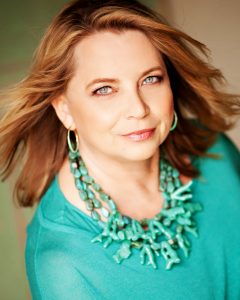Camarada Brings Live Performance with Audience (!) Back to Bread and Salt
Sunday’s Camarada concert at Bread and Salt in Barrio Logan brought the local music scene one step closer back to the traditional mores of music performance. Six Camarada musicians offered their music and introduced their selections to an audience appropriately dressed for a concert and actually seated in the same room! Granted, the chairs were strategically spread out so that only audience members who came together actually sat next to one another, and the total number of audience members was barely one-quarter of the number that would typically attend a Bread and Salt concert. And there were no walk-in patrons—only those who had registered for the event were seated.
Titling Camarada’s 2020-2021 season as well as this particular concert Unstoppable, the program featured engaging but lesser known composers of the 20th and 21st Century—with the exception of a spirited closing number by the adored Argentine composer Astor Piazzolla. There are times when I think that even Arnold Schoenberg could have become semi-popular if he had just added a tango rhythm to his murky scores.

Beth Ross Buckley [photo courtesy of Camarada]
Dring flourished in the mid-20th century; her saucy, polished Trio impressed me as an homage to the chamber music of Françis Poulenc, whom she admired: effervescent themes, clever shifts of meter, and piquant harmonic progressions. Andrea Overturf excelled in her elegant shading of the oboe cantilena that opens the second movement, and flutist Beth Ross Buckley matched Overturf’s sophisticated approach. Their rich sonorities could not have been more complementary. Dana Burnett dispatched the piano part—which reminded me of Poulenc’s piano writing in his Flute Sonata—with her customary panache.
Shapiro’s short etude “Re:pair” creates a sly dialogue between the English horn and the flute that ends in a lighthearted chase of clever counterpoint. Overturf’s English horn and Beth Ross Buckley’s flute easily conveyed Shapiro’s humor and craft.
One of the most prolific composers of the last century, the Italian Mario Castelnuovo-Tedesco composed with irrepressible facility. Although trained as a pianist, after meeting the great Spanish guitar virtuoso Andrés Segovia early in his career, he made it his mission to expand the repertory of that instrument; in his lifetime he wrote some 100 pieces for the guitar. Not surprisingly, his 1950 Fantasia Op. 145 for Guitar and Piano is a showpiece for each instrument, with an unrelenting piano part that would have served well as a daunting competition piece—what the French call a morceau de concours—and his elaborate guitar flourishes pay tribute to the Spanish school of Francisco Tárrega. Fred Benedetti brought his stellar guitar technique to this effervescent score, and Burnett proved the ideal complement.
We heard two works Argentine composer and contrabass player Andrés Martin, a musician who has settled in Baja California but is engaged in music on both sides of la frontera. His “Resilientes for Alto Flute and Double Bass” created a rich sonic tapestry pairing two unlikely instruments, especially when Martin wove rich yet deftly tapered high themes from his contrabass with the mellow timbre of Beth Ross Buckley’s alto flute. At other times, his sweeping low lines from the depths of his instrument added drama to this glowing paean.
Camarada premiered Martin’s Trio for Flute, Violin, and Double Bass, a beautifully crafted four movement chamber offering that reveals both Martin’s gift for melodic invention and his acute structural sophistication. My sole reservation about Martin’s work is his enthusiastic embrace of traditional harmonic practice; if I had been listening to the music without a program in hand, I might have guessed it had been written by Howard Hanson. For this performance violinist David Buckley joined flutist Beth Ross Buckley and the composer on his own instrument; the ensemble gave a most persuasive account of the score, which the Bread and Salt audience received enthusiastically.
In the middle of the last century, the composer Vincent Persichetti loomed large on the American music scene, and as a composition teacher at New York’s Juilliard School of Music, he taught many of the composers (e.g. Philip Glass, Peter Schickele, Lowell Lieberman, Richard Danielpour) whose works have ironically crowded out their teacher’s handiwork on the concert stage. But it is always instructive to hear his music, even a short, idiomatic piece such as his “Parable XV for solo English Horn,” Op. 128, which Overturf offered with keen insight.
Beth Ross Buckley knows how to send her audiences out smiling, and Piazzolla’s “Kicho” worked perfectly. After a short, meandering prelude played by the contrabass, the piece turns into a rollicking tango with rhapsodic violin surges and ardent guitar strumming. Guitarist Benedetti and contrabass virtuoso Martin were joined by both Buckley’s in this joyous work.
This Camarada concert was performed at Bread and Salt in San Diego’s historic Barrio Logan on Sunday, March 28, 2021, and tickets for the LiveStream airing of the concert slated for April 9, 2021, at 7:00 p.m. can be obtained at the website: www.camarada.org.

Ken Herman, a classically trained pianist and organist, has covered music for the San Diego Union, the Los Angeles Times’ San Diego Edition, and for sandiego.com. He has won numerous awards, including first place for Live Performance and Opera Reviews in the 2017, the 2018, and the 2019 Excellence in Journalism Awards competition held by the San Diego Press Club. A Chicago native, he came to San Diego to pursue a graduate degree and stayed.Read more…
